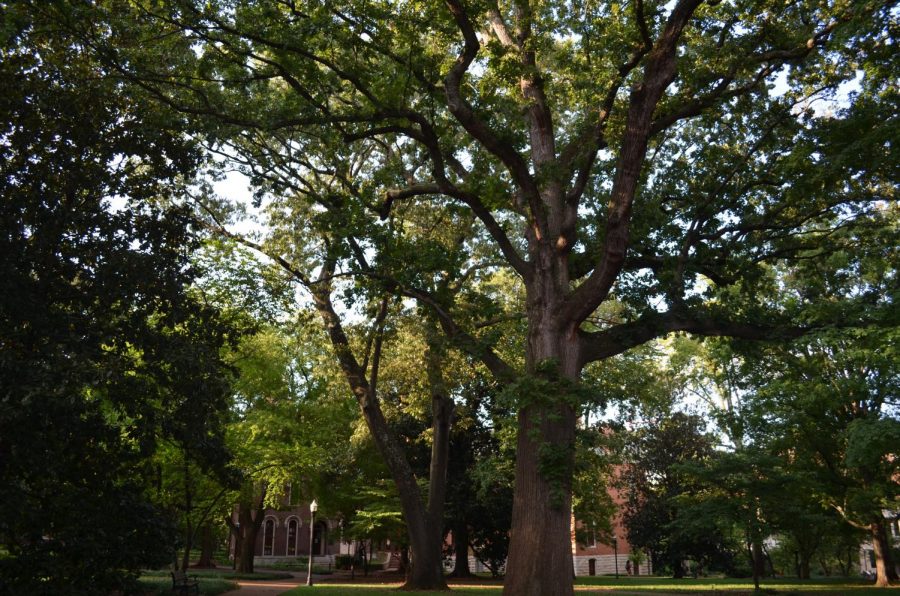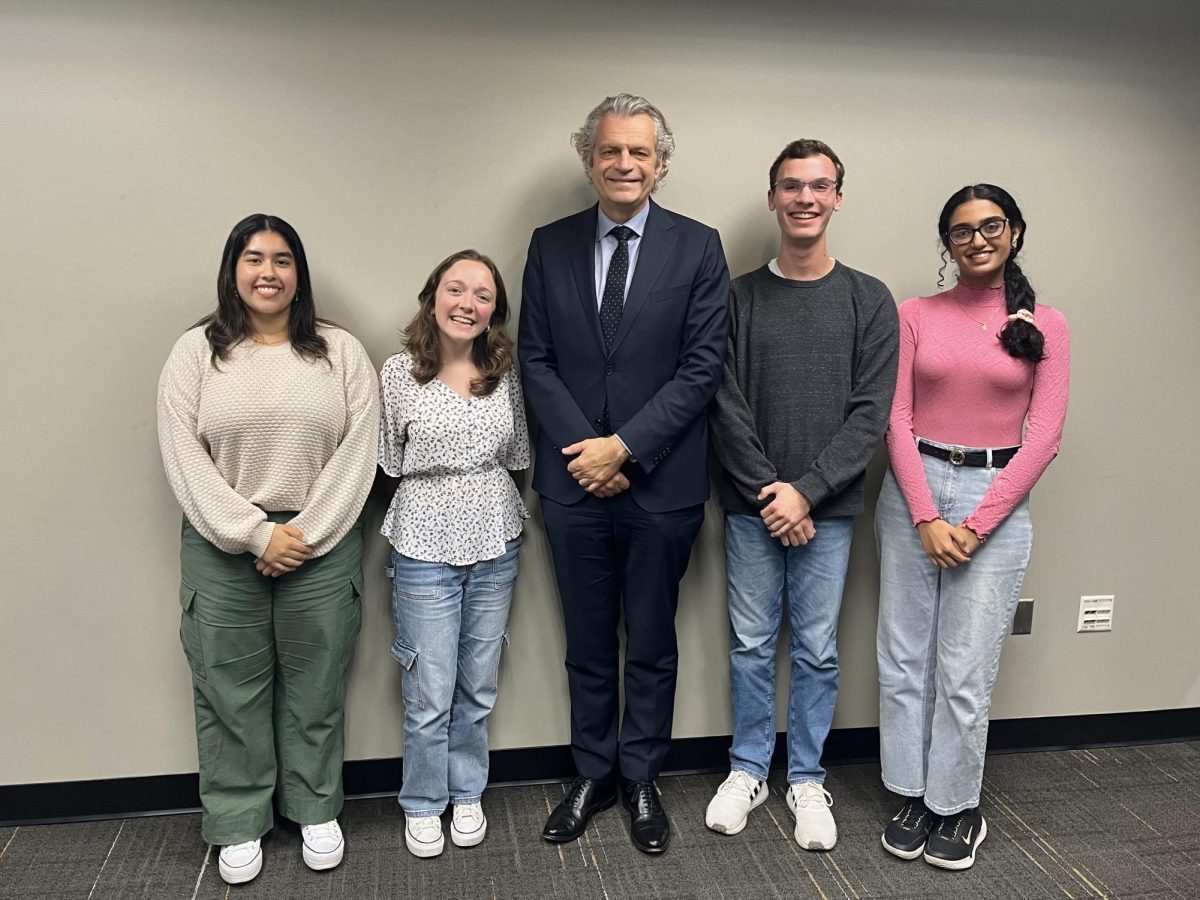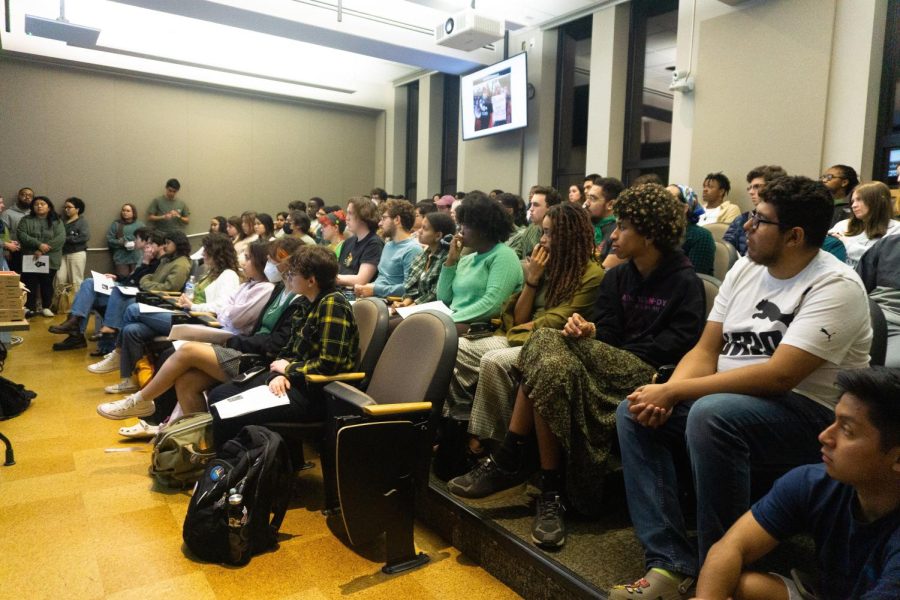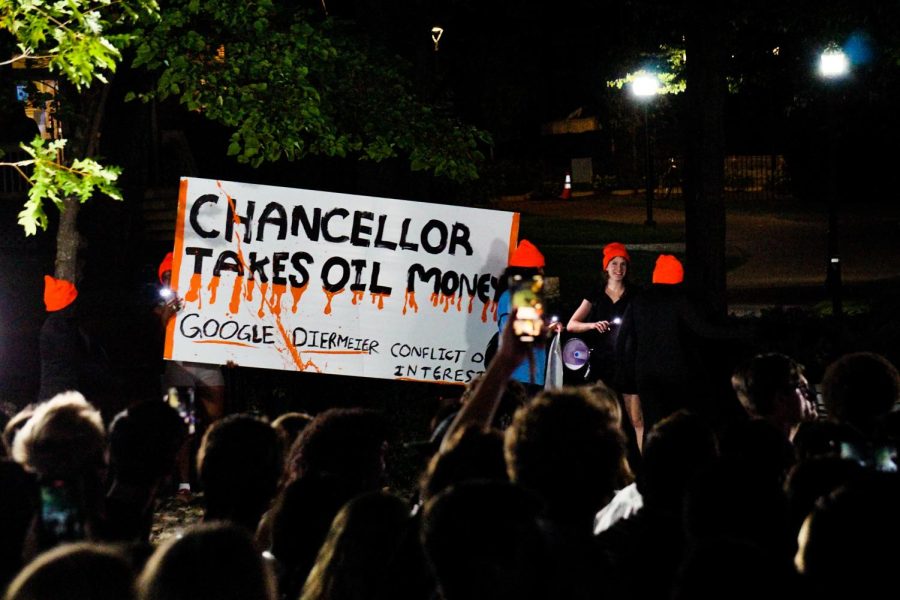UPDATE: The article has been updated to include more context for next steps regarding the Instutute.
On Feb. 12, the Vanderbilt Institute for Energy and Environment (VIEE)’s director George Hornberger announced that the institute will close permanently on June 30, administrative manager Mike Powell said in an interview with the Hustler.
Founded in 2008 with the mission of “conduct[ing] applied interdisciplinary research in energy and the environment,” the institute sought to inform environmental policy and management decisions.
Professor of Civil and Environmental Engineering George Hornberger has served as VIEE’s director since its inception and will retire at the end of the semester.
“I think we’ve had amazing success in bridging across disciplines and involving students and faculty from all the schools at Vanderbilt,” Hornberger said.
Mike Powell, who has served as VIEE’s administrative manager since 2010, said that he is proud of the work VIEE has done, and is unsure about who was involved in the decision to close the institution.
“I do not know if any faculty members were consulted about the decision to close VIEE,” Powell said. “The reasons for deciding to close VIEE were not promulgated, as far as I know.”
In terms of the future, Powell said that students who were associated with VIEE will continue their research with their faculty mentors. They will, however, lose access to VIEE’s networking and collaboration opportunities after June 30.
“As VIEE continues to operate until June 30, we are simultaneously launching a planning and envisioning process in consultation with university leadership, faculty, and students to map out our future trans-institutional strategy. We are committed to finding the best path forward so Vanderbilt can lead in addressing the critical challenges around global climate change, environment, and clean energy,” Vice Provost for Research Padma Raghavan said in an email to The Hustler on March 10. “Bottomline, with these next steps we seek to enhance our impact in these critical areas.”
In reaction to the closing, current students, faculty and graduates of VIEE signed a letter written by Earth and Environmental Sciences Ph.D. candidate Kelsea Best, addressed to Chancellor Daniel Diermeier and Provost Susan Wente. The letter sought to highlight VIEE’s benefit to students and the importance the institute served in interdisciplinary research.
“For many of us, VIEE has set the bar for how we can effectively engage diverse stakeholders in an inclusive environment towards the development of sustainable and actionable solutions,” the letter reads. “This has been especially impactful since many of us come from underrepresented communities.”
Best expressed her love for VIEE and stated that her peers and colleagues shared this same passion.
“I know a lot of people who have already graduated who shared my love of VIEE and knew that it was part of their success too,” Best said. “We wanted to highlight the stories of people and give people a chance to share what VIEE means for them.”
The letter included 16 testimonials from current and former students of VIEE. Many expressed that VIEE allowed them to stay connected to the human-environment issues they came to Vanderbilt to study while still maintaining their training in other fields. They also shared their experiences with networking and research, many being able to work alongside fellow undergraduate students, graduate students and faculty from various disciplines.
Best stated that some of the most valuable impacts that VIEE has had on her are the networking connections and exposure to a broad range of feedback on her work. Highlighted in the letter is VIEE’s commitment to interdisciplinary research, providing resources and professional networks to its students.
Best wrote, “too often, we fall into silos (science vs. engineering; physical vs. social; research vs. applied; etc.) but VIEE highlights the opportunities afforded by breaking these silos in terms of developing both cutting-edge research as well as researchers.”
VIEE’s closure was announced in the midst of a call for increased environmental efforts on campus by environmental group, Dores Divest. Last month, students participated in an organized protest advocating for the university to divest portions of its endowment from the fossil fuel industry. The protest attracted over 30 students to attend, and over their petition to divest Vanderbilt from fossil fuels gained over 1000 signatures.
Best and her colleagues said that they hope that the university will continue VIEE’s mission of a commitment to interdisciplinary research and collaboration.











